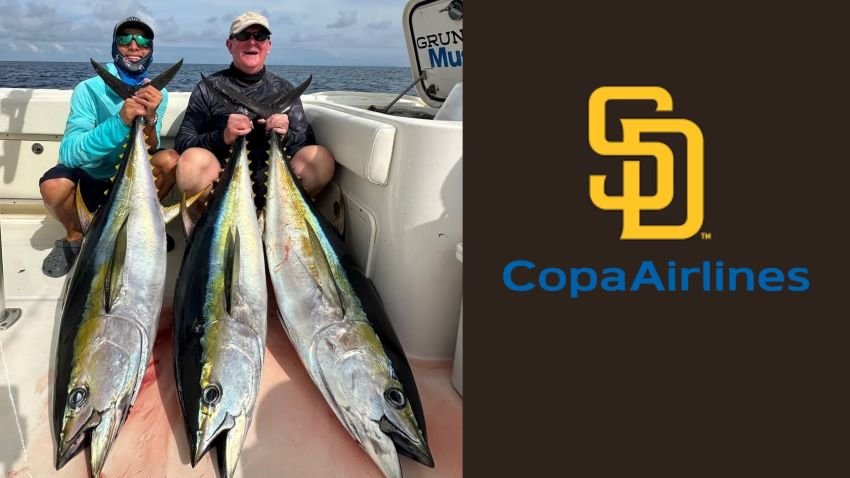Jennifer Combs: Spousal Support on Tour
I really pity the bass pros who don’t have a spouse, partner or assistant to take care of the day-to-day details that make the trains run on time. There are so many moving parts just to getting jerseys, keeping up with sponsors and choosing lodging, and each moment spent on one of those tasks is a moment that cannot be focused on the fishing itself.
Some pros travel with their wives or families. Others, like Keith Combs, appear to be a solo act, but Keith’s wife Jennifer (who we’ve interviewed previously on this site) is an integral part of his tournament success. One of her consistent roles is to find not just tournament housing, but the right tournament housing, a task that can be far more complicated than it seems.
Whether you aspire to compete on the Elite Series or just want to fish a couple of states over, here’s some hard-earned advice on how to find a place to stay.
HPFC: As an Elite Series wife who is not onsite at most tournaments, how do you contribute to Keith’s career?
COMBS: I have a full-time job, but aside from my full-time job I also have a full-time job with Keith’s fishing business. Basically I take care of pretty much everything on the business side. I take care of booking lodging. I take care of purchasing fishing licenses. I deal with emails, all social media, taxes (my least favorite).
HPFC: When it comes to lodging, what does he prefer?
COMBS: Prior to Ray Hanselman joining the Elite Series in 2019, Keith usually stayed by himself. That’s just what he preferred, so he normally stayed in a hotel. Once he started rooming with Ray, he decided he wanted to start staying in more cabins and houses. That’s what we’ve been doing since then. My job is to find those places.
HPFC: How do you do that? Is there a separate process for a new tour stop versus and existing tour stop?
COMBS: It’s the same really for both. There are some places that we’ve visited multiple times, like Guntersville for example. The first one we booked there the host was extremely nice and we text a lot and she said next time just give me a call. So now they’ve stayed in the same place several times and that’s great but usually – whether it’s new or not – the first thing is to figure out which boat ramp they’re going to go out of. Once I have that established, I’m looking for anything that is within X amount of miles. It depends on the location as far as how far out I’ll look, but they typically want to stay within 30 minutes or so of the launch. It doesn’t always work out that way, but that’s what we shoot for. Then we look at the area. They don’t want to stay somewhere that’s congested so if you can be out of town that’s great. You also need to look at the area that you’re in. Booking lodging someplace like here at Sam Rayburn would be easy because everything is fairly flat, but you get over into the Lake Lanier area – it’s very hilly, with narrow, windy roads, something that you really have to be careful with. I learned that the hard way. In 2019 I found a house online close to Lanier. First two questions I always ask: Do you have enough parking to accommodate two full-sized trucks, two 28 foot trailers; and do you have electrical outlets for charging batteries. Those are the things I ask before anything else. At Lanier, they said they had plenty of parking, they had electrical and the house looked nice. It sounded fine, so I booked it, but when they got there for the tournament Keith called me and said he couldn’t park at the house. I was like, “What do you mean? They said there was plenty of parking.” He said there was parking, but the roads were so narrow and so winding and steep that they could not back into the driveway. There was no way. No way for them to turn around, nothing. So there we were, the day they were supposed to be checking in, and they couldn’t stay there. Fortunately, we were saved by a good friend who has a house at Lanier and invited them to stay there. It worked out, but had he not had a friend there we would have been up you-know-what creek. I learned a very valuable lesson: Google Earth is your friend. You’ve got to look at the satellite, what’s close by, how steep the driveway is. Is it a really busy road where if they had to back in it might cause problems? You have to look at all of that.
HPFC: What about safety? They’re traveling with thousands and thousands of dollars worth of gear. In some respects they are sitting targets if you’re not careful.
COMBS: Most of the time we try not to stay in town. You’d like to think that it’s going to be safe, but it’s really hard to know by looking online. I’ll give you an example – the last time they were at Cayuga I had found a house for Keith and Ray and Robbie Latuso. The houses are really expensive up there so by finding one that accommodated three people we were able to cut down on costs. Fortunately for them, the house that we rented was up off the road. There were bushes so you really couldn’t see it, which was good, because just a couple miles down the road from there on the very same road several of the guys got their stuff stolen. You really never know. You wouldn’t think it would happen there because it’s not really near anything, but thieves are thieves and they’re going to be everywhere. If we’re going to a big town I do try to get on the satellite and see how congested it is around the place. Sometimes you can tell, if it looks like there’s a bunch of crap around, but sometimes you can’t.
HPFC: So do you always call, or do you ever book a place straight through the internet without talking to anyone? And when you call, what other questions have you learned to ask?
COMBS: I do both, a lot of emails. Most places want you to submit your questions online, but I often find that the owner will say to give them a call so we can talk it out.
HPFC: Any other horror stories from Keith’s experiences?
COMBS: You’re asking me to think about a 10 year career. I can’t remember what I did 5 minutes ago. I don’t know if it’s necessarily a lodging horror story, but I can tell you that several years ago I did not make a reservation in advance for Keith. He was pre-practicing up north. He was in New York. He’d been on the road for about 15 hours and he started trying to stop to find a place to stay. There was nothing. He’d go to the next town and there was nothing….and nothing….and nothing. Literally, it was 4 in the morning before he finally found a place that he could stay. We learned that you can’t ever just go and think that you’ll find a place. You better be prepared or you might be in big trouble.
HPFC: If you’re traveling with him, is there a different standard of habitability than if he’s by himself or with Ray?
COMBS: Not really. I’m not high-maintenance by any means. Having said that, Keith is not going to put me in a crap hole, either. I’ve stayed in my fair share of fishing cabins.
HPFC: Does he cook or eat out when he’s on the road? Do you help him with any sort of meal prep?
COMBS: He does not cook. The most I do to help is before he gets ready – and we’ve really only started this over the past year with the whole COVID situation – we’ve started doing grocery pickup before he heads out of town. We pack a cooler with everything that he’s going to need for the week so that when he gets where he’s going he doesn’t need to go grocery shopping and potentially be exposed.
HPFC: So what does he actually eat for dinner?
COMBS: That’s a great question! I would love to know what he eats for dinner.
HPFC: I’m not going there. I don’t want to add strife to anyone’s marriage.
COMBS: I can tell you that for breakfast we normally buy frozen sausage biscuits that he can just pop in the microwave. Sometimes he eats oatmeal. For lunches he’ll normally make a ham or turkey sandwich and take that in the boat. We do 100 calorie packs of mixed nuts, almonds, for snacks, and maybe some Clif Bars, but as for what he does for dinner, I don’t know. Probably stuff he doesn’t want me to know.
HPFC: So for someone who is traveling with a boat for the first time, or headed away to their first long-distance tournament, what’s the number one piece of advice you can give them on picking a place to stay.
COMBS: It’s the parking. I think most fishermen know this, but check all of your stuff out – your tires, your motor, everything. One time Keith was driving down the highway and felt like his motor was moving. He didn’t know it but some of his bolts had gotten loose. Had he not realized it, his whole motor might have fallen off. I’ve been with him in the truck when we had a blowout. Make sure that you’re prepared to change a tire and have a spare. As far as getting to your lodging, parking and charging are both number one. If you have a good parking spot that’s great, but if you can’t charge your batteries you’re going to be screwed. Ask those two questions first and foremost.








